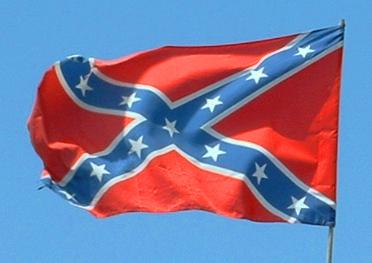ISU professors, students support removal of Confederate flag

The Confederate flag in front of the state house in South Carolina was removed July 10.
July 17, 2015
It took nine pens and 54 years, but eventually, South Carolina Gov. Nikki Haley finished signing the final deathblow for the Confederate flag flying in front of the state house.
The flag was officially brought down at 10 a.m. July 10.
While the removal of the Confederate flag may be insignificant compared to larger issues, such as the recent murders in Charleston and ongoing investigations into police brutality, many civil rights advocates see the successful vote to take down the flag as a step in the right direction.
The flag was raised over the South Carolinian State House dome in 1961 to mark the centennial of the Civil War. Except, the flag flown in Charleston that day was not one of the three national flags of the Confederacy. Instead, it was the Second Confederate Navy Jack. Better known as the “Stars and Bars.”
Kathleen Hilliard, associate professor of history, and her husband, Larry McDonnell, an assistant professor of history, agree that it is only the first step for the country after the Charleston murders and other headlines of institutionalized racism during the past year.
“It’s a political flag,” McDonnell said. “The separation of church and state is something even the Confederacy understood. At the center of that flag is the St. Andrews cross, it’s a religious symbol, they never would have put a religious symbol on their flag.”
While there is controversy as to the original intent of raising the flag over the South Carolina State House. Hilliard said she believes there was more to it than a centennial celebration.
“They raised the flag in 1961 as resistance to desegregation and the Civil Rights Movement,” Hilliard, a South Carolina native, said.
This flag was taken from the dome in 2000 and placed on a flag pole in front of the capital grounds next to a monument commemorating fallen confederate soldiers.
“They do this slogan, ‘Heritage not hate,’ but there’s no heritage that doesn’t involve hate. It’s a heritage of hate,” McDonnell said. “Hate is one thing, but what if I don’t hate those people but I can make a lot of money off of them, wreck their families, tear apart their country — but my children will live well and that’s what Europeans and Americans chose to do… and there’s just something really evil about that.”
Hilliard, author of “Masters, Slaves, and Exchange: Power’s Purchase in the Old South,” said even Iowa teachers make excuses for slavery. That it was just the way it was, or compared to the working class in the north it wasn’t that bad.
“You have to think of the psychology of slavery,” Hilliard said. “The fear every day of knowing your child is not your own… even if you did have clothes, what does it matter?”
As a Canadian, McDonnell weighed in saying, “The Civil War is the most glamorized and romanticized war, and I don’t think it’s a tremendous achievement that this country managed to kill three-quarters of a million of its own people for something other than destroying slavery.”
The politics surrounding the Civil War are complicated and there is no simple answer, but Hilliard and McDonnell both said the majority of historians are offended by the Confederate flag because of the inherent nature in which it is a symbol of racism.
“Taking down the flag doesn’t mean anything if everyone sees it as a final step. It needs to be the first step to addressing inequity.” Hilliard said.
Iowa State may not be flying a Confederate flag, but McDonnell thinks there are still questions faculty and students need to answer.
“I walk into a class of 300 students and only two of them are black. Where are they? We need to ask ourselves these questions on campus,” McDonnell said.
As professors at Iowa State, Hilliard and McDonnell are ready to start talking with students about the controversy over the Confederate flag, using it as a baby step into the bigger issues of inequity and racism.
“I think it’s great that we as a nation have taken down the Confederate flag. I’m proud of my Southern heritage, but the flag doesn’t define being Southern,” Catherine Brown, a senior in marketing from Texas, said.
Jordan O’Brien, also a Texas native and a senior in kinesiology and health, said he is glad the flag was taken down.
“I believe the flag being taken down will be a good step for South Carolina to start relieving racial tension. But it’s only the first step,” O’Brien said.
















